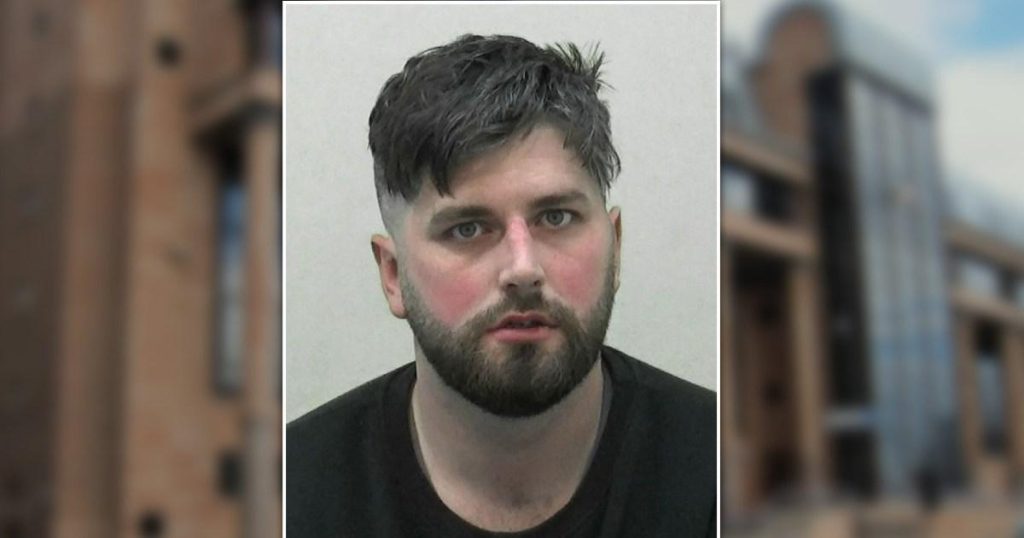Paragraph 1: The Hoax and the Raid
On December 30th, a peaceful family evening was shattered by a terrifying police raid. As the family sat down for tea at their home on Denton Road, Newcastle, flashing blue lights suddenly appeared outside. Upon opening the door, a family member was met with the jarring sight of a firearm pointed directly at them, accompanied by a command to get down. Four members of the family were subsequently arrested at gunpoint in the presence of two young children, one of whom, an 11-year-old boy, was understandably traumatized and burst into tears. The heavily armed officers were responding to a report of a kidnapping, a report that would later be revealed as a complete fabrication.
Paragraph 2: The False Narrative and Its Consequences
The architect of this distressing scene was 30-year-old Ricki Kendall, also known as Curry. Kendall had contacted the police claiming to have witnessed a disturbing incident: balaclava-clad individuals armed with a machete forcing a man into the very house where the unsuspecting family resided. This fabricated narrative triggered a swift and forceful police response, involving firearms officers and resulting in the family’s arrest. The police investigation, however, quickly uncovered the truth. Extensive CCTV reviews yielded no evidence to corroborate Kendall’s story, no weapons were found at the scene, and no other witnesses came forward despite Kendall’s detailed description in his official statement. The family, innocent victims of Kendall’s deceit, endured 15 hours in custody while their ordeal became public fodder for social media and news outlets.
Paragraph 3: The Family’s Trauma and Public Humiliation
The emotional scars of the incident run deep for the affected family. In their victim impact statements, they described the profound psychological distress they experienced. One family member articulated the lingering anxiety and the impact of seeing their ordeal splashed across news platforms and social media, where they were subjected to hurtful comments and racial slurs. Another family member recounted the humiliation and fear of being arrested for the first time, particularly in front of their 11-year-old brother. The trauma of witnessing the armed police raid and subsequent arrests left the young boy deeply distressed. The family’s simple evening meal was transformed into a nightmare, leaving them to grapple with the emotional aftermath of an unwarranted and deeply upsetting experience.
Paragraph 4: Kendall’s Criminal Actions and Legal Repercussions
While the family struggled to cope with the fallout from the hoax, Kendall compounded his wrongdoing. While out on bail for perverting the course of justice, he committed a robbery, stealing £110 from a taxi driver at knifepoint. This additional criminal act further solidified the pattern of disregard for the law and the well-being of others. Kendall, who already had a substantial criminal record with 39 previous convictions, ultimately faced the consequences of his actions in court. He pleaded guilty to both perverting the course of justice and robbery.
Paragraph 5: The Judge’s Condemnation and Sentencing
Judge Andrew Stubbs KC, presiding over the case, delivered a stern rebuke of Kendall’s behavior. He acknowledged Kendall’s mental health struggles, noting that Kendall had been making calls to emergency services and, dissatisfied with their responses, concocted the kidnapping story. The judge highlighted the severity of the false report, emphasizing the unnecessary deployment of firearms officers and the significant waste of police resources – approximately nine days of police time, including the involvement of highly trained officers who could have been attending to genuine emergencies. He condemned Kendall’s actions for the distress inflicted upon the innocent family, their wrongful arrest, and the public dissemination of their ordeal. For his crimes, Kendall received a total sentence of 53 months in jail.
Paragraph 6: The Wider Implications of False Reporting
This case underscores the serious consequences of false reporting and the ripple effect it can have on individuals and the community. The incident not only traumatized the family involved but also diverted valuable police resources and eroded public trust. The judge’s sentencing reflects the gravity of such offenses and sends a clear message about the importance of responsible engagement with emergency services. The case also highlights the potential for social media to amplify the negative impacts of false accusations, adding another layer of distress for victims unjustly caught in the crossfire. The incident serves as a stark reminder of the need for accurate and truthful reporting, and the devastating consequences that can arise from fabricating stories, particularly those involving serious criminal activity.











